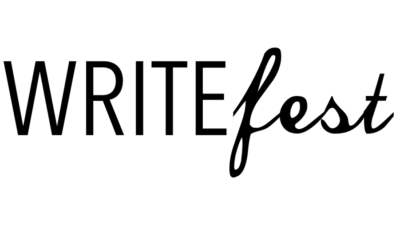Join in the global challenge to boost your academic writing this November. Check our website for resources, share your tips with the researcher community, and start writing!
November is Academic Writing Month, an academic write-a-thon that happens every year, inspired by National Novel Writing Month (NaNoWriMo), catering to the specific needs of academic writers.
Originally hosted by 'PhD2Published', the global academic community has now taken up the annual challenge to support each other to pledge their writing projects, record progress, and share thousands of writing tips via the #AcWriMo hashtag. Follow us on Twitter, @UCL_ODResearch for more academic writing month updates.
Why WriteFest?
The festival aims to provide protected time and space for writing to help you to:
- HABITS - develop good writing practices and strategies.
- BLOCKS - overcome blocks and take proactive approach to writing.
- PROTECT - set up routines to incorporate academic writing as part of the writing day.
- SOCIAL - spend some time out writing with others.
Explore the variety of training opportunities available to doctoral researchers and research staff to support your writing below:
- On-Demand Courses:
Doctoral Researchers and Research Staff & Academics Course Title: Nature Masterclass: Narrative Tools for Researchers (self-paced) Nature Masterclass: Focus on Peer Review (self-paced) Nature Masterclass: Publishing a Research Paper (self-paced) Nature Masterclass: Writing a Research Paper (self-paced) Nature Masterclass: Writing and Publishing a Review Paper (self-paced) Doctoral Researchers: The Writing Series: Writing and publishing a research paper (self-paced)
Research Staff & Academics: The Writing Series: Writing and publishing a research paper (self-paced)
- Writing Retreats
Doctoral Researchers Research Staff & Academics Date: Course Title: Date: Course Title: 07 November 2023 The Writing Series: Weekly Writing Retreats
07 November 2023 The Writing Series: Weekly Writing Retreats
14 November 2023 The Writing Series: Weekly Writing Retreats
14 November 2023 The Writing Series: Weekly Writing Retreats
21 November 2023 The Writing Series: Weekly Writing Retreats
21 November 2023 The Writing Series: Weekly Writing Retreats
28 November 2023 The Writing Series: Weekly Writing Retreats
28 November 2023 The Writing Series: Weekly Writing Retreats
- Writing Your Thesis
Doctoral Researchers Date: Course Title: 20 Nov 2023 Writing your PhD Thesis Methods/ Methodology 22 Nov 2023 The Writing Series: Writing PhD thesis impact statement – 1:1 clinic 27 Nov 2023 Writing your PhD Thesis Results and Discussion 29 Nov 2023 The Writing Series: Literature Review 29 Nov 2023 The Writing Series: Writing Up Research Arguments and Findings 30 Nov 2023 The Writing Series: Writing PhD thesis impact statement
- Writing for Publication:
Doctoral Researchers Research Staff & Academics Date: Course Title: Date: Course Title: 03 Nov 2023 BioNews Writing Scheme 03 Nov 2023 BioNews Writing Scheme 20 Nov 2023 The Writing Series: Choosing a journal suitable for your research manuscript 20 Nov 2023 The Writing Series: Choosing a Journal Suitable for your Research Manuscript 20 Nov 2023 The Writing Series: Book Proposals: A Practical Guide 20 Nov 2023 The Writing Series: Book Proposals: A Practical Guide 23 Nov 2023 The Writing Series: Publishing Outside Academia 23 Nov 2023 The Writing Series: Publishing Outside Academia 30 Nov 2023 The Writing Series: Editing for Publication 30 Nov 2023 The Writing Series: Editing for Publication
 Close
Close


